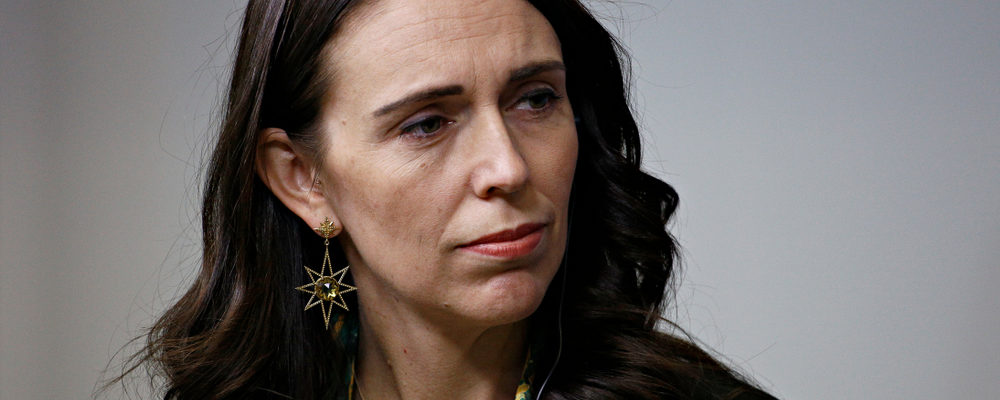Prime Minister of New Zealand Jacinda Ardern has won plaudits from senior academics for her handling of the coronavirus crisis.
In a recent interview (Newshub.co.nz, 3 April 2020), leading Kiwi epidemiologist Professor Michael Baker described New Zealand’s measures against Covid-19 as the “most decisive and strongest lockdown in the world at the moment”. Baker said that he had been “losing sleep” in the weeks before the nation’s lockdown came into effect, but had his “best night's sleep in a month” when it was implemented. He noted: “The reason is, all around the country, all these chains of transmission of the virus … [are] gradually being snuffed out. So I think that was a fantastic move by the government.”
Reacting to a study from the London School of Hygiene and Tropical Medicine showing that New Zealand’s Covid-19 transmission rate between individuals has been brought own to below one, Baker added: “That is really great news – it’s saying we can beat this virus. The main thing is all New Zealanders have to absolutely get behind this move. New Zealand may be able to come out of this state much sooner than any other country, if we get this right.”
Evaluating Ardern’s handling of the crisis (The Conversation, 5 April 2020), Suze Wilson – senior lecturer in executive development at Massey University – tips her hat to US professors Jacqueline and Milton Mayfield’s research into effective leadership communication.
Wilson writes: “The Mayfields’ research-based model highlights ‘direction-giving’, ‘meaning-making’ and ‘empathy’ as the three key things leaders must address to motivate followers to give their best. Being a public motivator is essential for leaders – but it’s often done poorly. The Mayfields’ research shows direction-giving is typically over-used, while the other two elements are under-used.”
She notes: “Ardern’s response to Covid-19 uses all three approaches. In directing New Zealanders to ‘stay home to save lives’ [during a 23 March press conference], she simultaneously offers meaning and purpose to what we are being asked to do. In freely acknowledging the challenges we face in staying home – from disrupted family and work lives, to people unable to attend loved ones’ funerals – she shows empathy about what is being asked of us.
“The … press conference announcement of New Zealand’s lockdown [was] a clear example of Ardern’s skilful approach, comprising a carefully crafted speech, followed by extensive time for media questions.”
What can leaders in other types of organisations take away from Ardern’s approach and apply to their own crisis management efforts?
The Institute of Leadership & Management’s head of research, policy and standards Kate Cooper says: “Typically, I’m reluctant to comment on the leadership skills of specific individuals if I don’t know them. The drawback with making such comments is that you can end up critiquing the media creation of who the individual is, rather than the person as they are. However, the fact that Baker and Wilson have both analysed Ardern’s strategic approach to the Covid-19 crisis from the perspective that it’s actually delivering results means that one can comment with some confidence on her acumen as a leader.”
She points out: “The framework of providing direction while also empathising and explaining is fundamental to effective communication in leadership. But that doesn’t cover everything that Ardern has brought to the table. Her chief asset – which has helped to reinforce her actions during the crisis – is consistency. As soon as Ardern got into office in 2017, she set out her stall as someone who cares about wellbeing. That outlook flourished last year with the publication of New Zealand’s Wellbeing Budget (New Zealand Treasury, May 2019): an effort to pivot away from GDP as a totemic gauge of national performance and focus instead on the personal impacts of strategic policy decisions.”
Cooper notes: “Ardern has cultivated a track record of caring about people, together with a strong, evidence-based strategy for how she intends to bring that ethos to practical fruition. As a result, she has garnered a high level of trust, which means that her messaging has been acknowledged and embraced among the Kiwi population. Almost a year on from the Wellbeing Budget, when she steps up to a public platform and says, ‘This is what I think we should do to care for each other and the country,’ there’s an authenticity to that.”
She adds: “By contrast, whenever a leader has established a track record of dismissing the advice of experts and has then, in the white heat of an emergency, decided to adopt it, that consistency is simply not there. Consistency of behaviour is an essential tool for building trust. In parallel with that, one of Ardern’s most charming contributions in recent days was her reassurance to New Zealand’s children that she has recognised the Easter Bunny and Tooth Fairy as essential workers during the pandemic (BBC News, 6 April 2020). That really was empathy in action.”
For further insights on the themes raised in this blog, check out the Institute’s resources on building trust
Source refs:
Jacinda Ardern 23 March press conference
The Conversation, 5 April 2020
New Zealand Wellbeing Budget, May 2019
Image of Jacinda Ardern courtesy of Alexandros Michailidis, via Shutterstock

